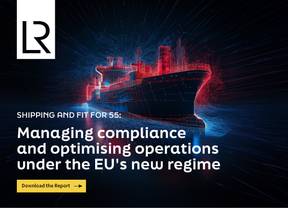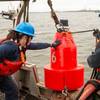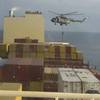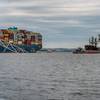If asked to assess the level of international, national and local regulation ruling its daily operations and bottom line, most in the marine industry would undoubtedly respond "intense."
If you concur, then you're in for some bad news.
The scrutiny of maritime matters by lawmakers near and far is at a fever pitch worldwide. While pressure and visibility of the industry is always high in the wake of severe casualties, there is a perceivable difference in the tone of political and special interest group saber rattling. Real changes — "OPA 90-esque" changes — are close at hand.
Central to the current push — as discussed in these pages many times before, and I'm sure many times again — is the break-up and sinking of the tanker Erika off the French coast in December 1999. At press time, leaders from the European Union were scheduled to meet in Brussels to discuss sweeping changes which could significantly impact the way in which ships are designed, built, equipped and operated. Intertanko's Dagfinn Lunde, a much respected figure in maritime matters around the world, shares his opinions on the quickly evolving topic in an opinion piece on page 80 of this edition.
The "Erika effect" has already caused a jump in chartering rates, as many oil majors are opting for newer tonnage to carry their products.
While Erika has been the primary headline-grabber, it alone is not the reason for concern. The cruise market, which has sustained an incredible success run dating back to the early 1990s, is facing many serious issues as well. The handling of these issues will help to determine the course of the industry for the next decade.
Several high-profile mechanical failures on Carnival cruise ships is just a small piece of the emerging puzzle, but its dimension should not be understated. When there is a mechanical failure on any other type of ship it goes largely unnoticed by the general public — unless of course it results in an accident. But when the lives and vacations of 2,000+ people are affected, it tends to make its way quickly to the 11 o'clock news. These incidents have not, by any means, destroyed public confidence in the cruise lines. But it is starting to erode at the industry's image, which has carefully and successfully been crafted over the past decade. Fixing public perception, though, is perhaps the least of the cruise lines’ worries in the coming months, as they have proven time and again to be particularly adept at marketing their valued services.
More pressing — for cruise shipping companies in particular but the maritime realm in general — is the increased attention to environmental matters. As the new emission standards in regard to diesel propulsion will attest, the focus on ships' effects on the ocean and surrounding coastal lands is growing daily. At press time the U.S. Environmental Protection Agency has cited six cruise lines for high emission levels in Alaskan waters, and questions regarding ship size and their effects on the environment is grabbing attention in the key Caribbean region. These are matters that cannot be ignored and will not simply be swept away in time.
Sponsored Content
LR - Fit for 55: Managing compliance and optimising operations

Use Roxtec seals, services and software

Subscribe for
Maritime Reporter E-News
Maritime Reporter E-News is the maritime industry's largest circulation and most authoritative ENews Service, delivered to your Email five times per week









